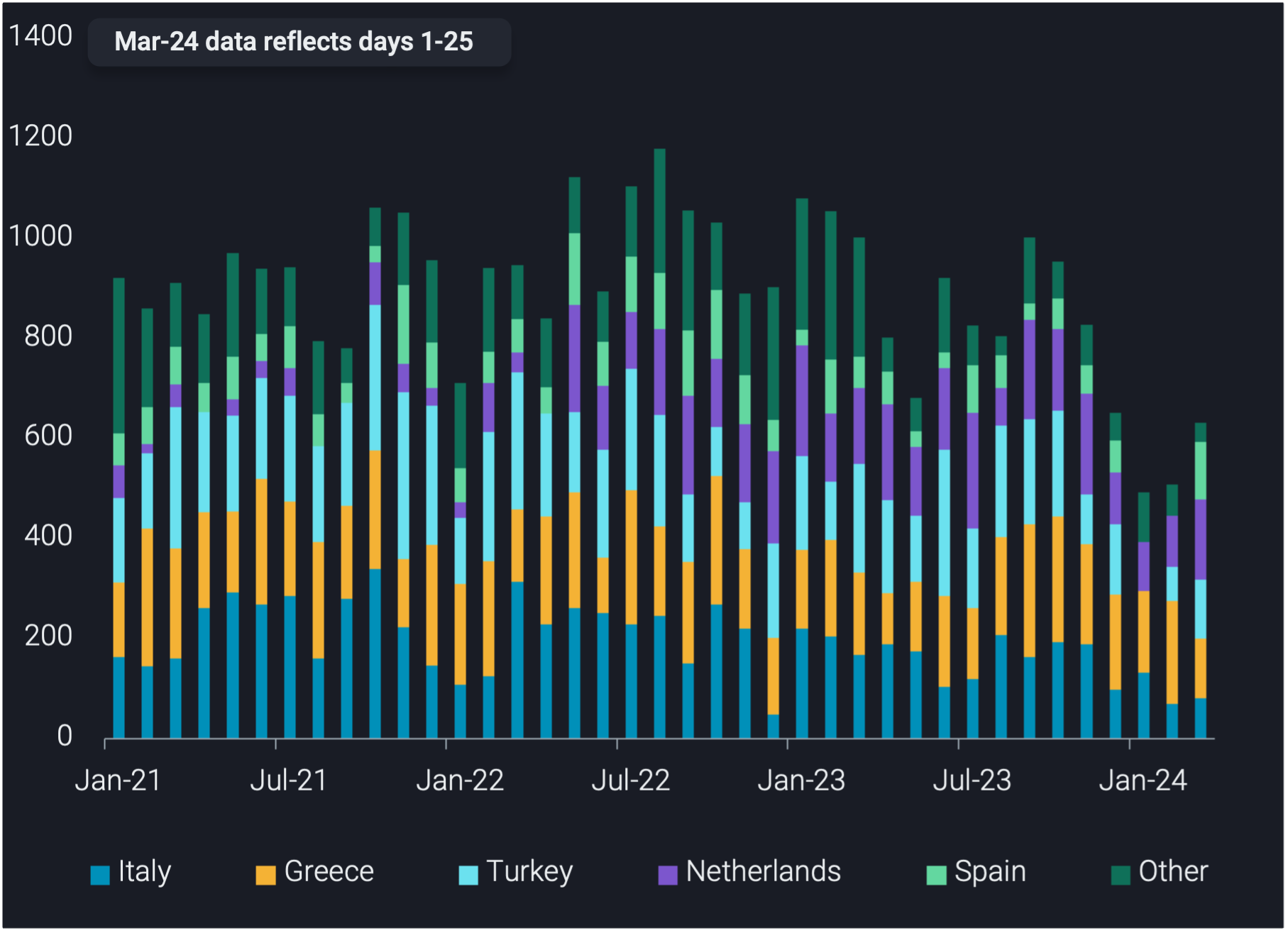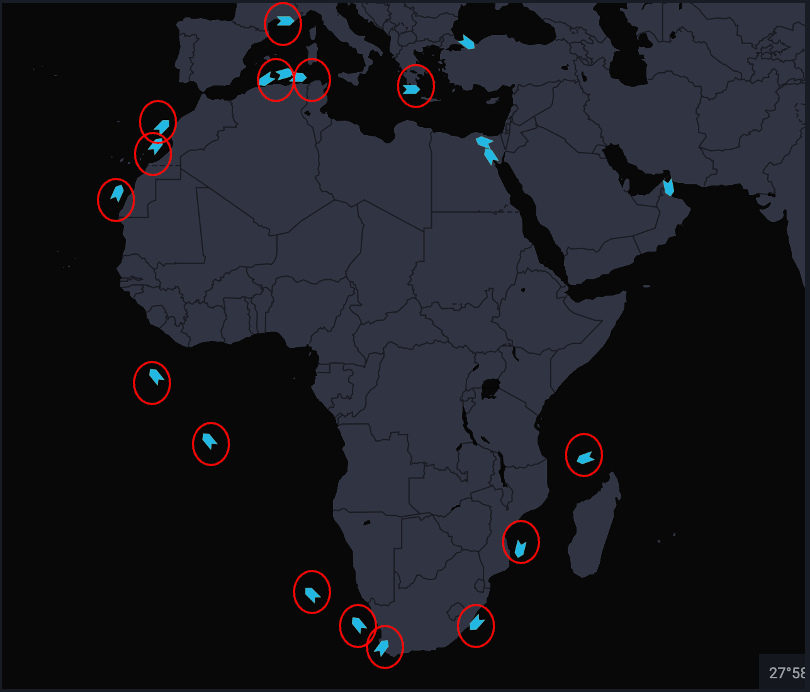Europe’s imports of Iraq crude to recover after Red Sea diversions triggered a slump
This insight explores the impact on Europe’s crude imports from Iraq following Red Sea disruptions.
Europe’s crude imports from Iraq are set to reach just 500kbd in February, flat m-o-m but nearly 400kbd below the 2023 average. Italy, Greece, Turkey and Netherlands are the largest European importers of Iraqi crude, accounting for 70% of imports into Europe.
This sharp decline in Europe’s imports from Iraq is related to various factors, but was definitely aggravated by the Red Sea transit risks, which caused most tankers carrying Iraqi crude to Europe to sail via the Cape of Good Hope (COGH) as opposed to the Suez Canal. This has resulted in Iraqi crude taking longer to arrive in Europe, hence the decline in imports since the Red Sea disruptions started. Expected arrivals in March (days 1-25) suggest a 130kbd increase in imports m-o-m, as rerouted barrels started to arrive again as of 20 Feb. Over the stretch from Feb 2-19 only a single tanker with Iraqi crude arrived in Europe due to the route switch and longer travel time.
The tightness in Iraqi crude into Europe is further exacerbated by the complete absence of Kirkuk exports since March 2023. An arbitration ruling against Turkey has resulted in the ITP pipeline remaining closed whilst Baghdad and Ankara negotiate terms of the fine. This has resulted in 400kbd of Kirkuk removed from the European market, based on 2022 full-year volumes, placing even more importance on these supplies coming from the Middle East.
On the other hand, India’s imports of Iraqi crude reached 1.15mbd in January, the highest level observed since April 2022. This is a near 300kbd increase from the 2023 average. India is in proximity to Iraq, so it’s easier to place these barrels (and avoids Red Sea disruptions) but also replaces lost Russian crude. India imported no Sokol in January due to sanctioned tanker disputes and payment issues.
As of 22 February 2024, 16 in-transit tankers (circled in red) carrying 19mb of Iraqi crude to Europe are sailing via the COGH. Of these 16 tankers, 11 are Suezmax/LR3s whilst the remaining are VLCCs.
Generally Europe looks well supplied with crude, given steadily growing inflows from the Americas. But the absence of Russian Urals crude, Kirkuk and to quite some extent also secondary feedstocks amid continued OPEC cuts is skewing the feedstock slate very much to the light side. Therefore, continued imports from Iraq and some other Middle Eastern players via the Cape of Good Hope are highly likely in spite of longer voyage times.

